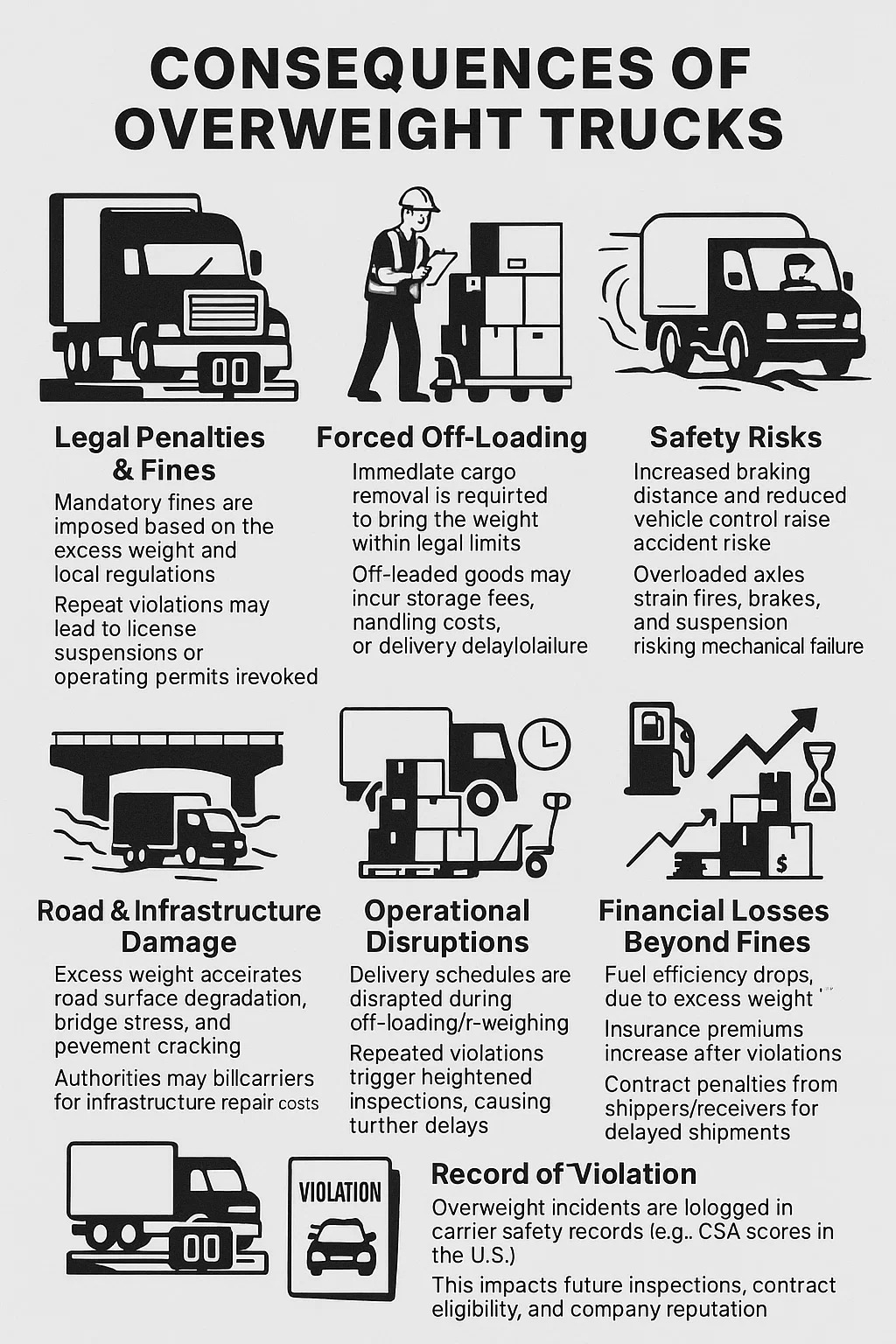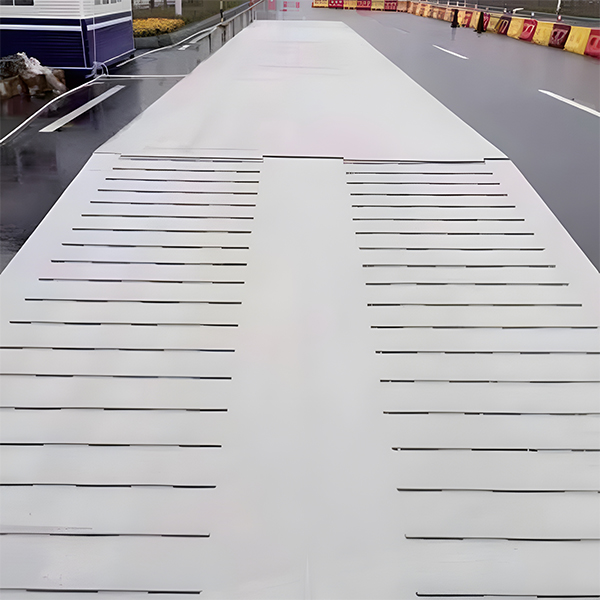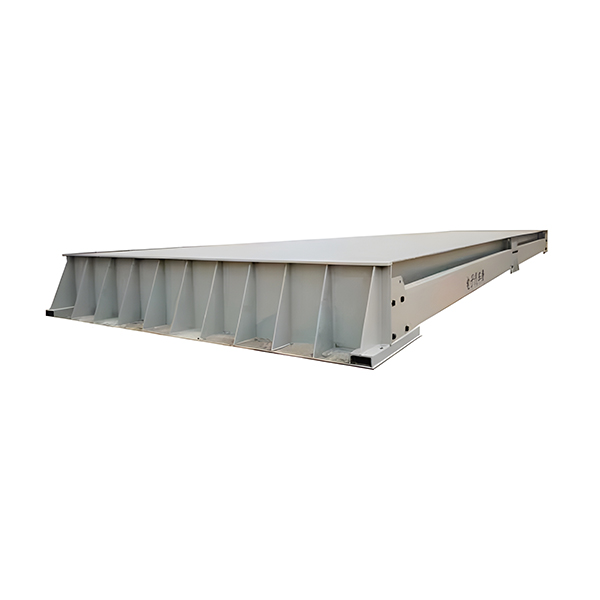Web Menu
Product Search
Exit Menu
What happens if you are overweight at a truck scale?
If a truck is found overweight at a truck scale, the consequences are immediate and severe. Here's what typically happens:
Consequences of Overweight Trucks
Legal Penalties & Fines
Mandatory fines are imposed based on the excess weight and local regulations.
Repeat violations may lead to license suspensions for drivers or operating permits revoked for carriers.
Forced Off-Loading
Immediate cargo removal is required to bring the weight within legal limits.
Off-loaded goods may incur storage fees, handling costs, or delivery delays.
Safety Risks
Increased braking distance and reduced vehicle control raise accident risks.
Overloaded axles strain tires, brakes, and suspension, risking mechanical failure.
Road & Infrastructure Damage
Excess weight accelerates road surface degradation, bridge stress, and pavement cracking.
Authorities may bill carriers for infrastructure repair costs.
Operational Disruptions
Delivery schedules are disrupted during off-loading/re-weighing.
Repeated violations trigger heightened inspections, causing further delays.
Financial Losses Beyond Fines
Fuel efficiency drops due to excess weight.
Insurance premiums increase after violations.
Contract penalties from shippers/receivers for delayed shipments.
Re-Weighing Requirements
After adjusting cargo weight, the truck must re-enter the scale for verification.
Only a legal weight ticket allows continued travel.
Record of Violation
Overweight incidents are logged in carrier safety records (e.g., CSA scores in the U.S.).
This impacts future inspections, contract eligibility, and company reputation.

-
Add: Building 3, No. 355, Xiangshan East Road, Binhai Economic Development Zone, Cixi City, Ningbo, Zhejiang, China.
-
Tel: +86-18969402526
-
Phone: +86-0574-86817102
-
E-mail: [email protected]

 English
English 中文简体
中文简体





